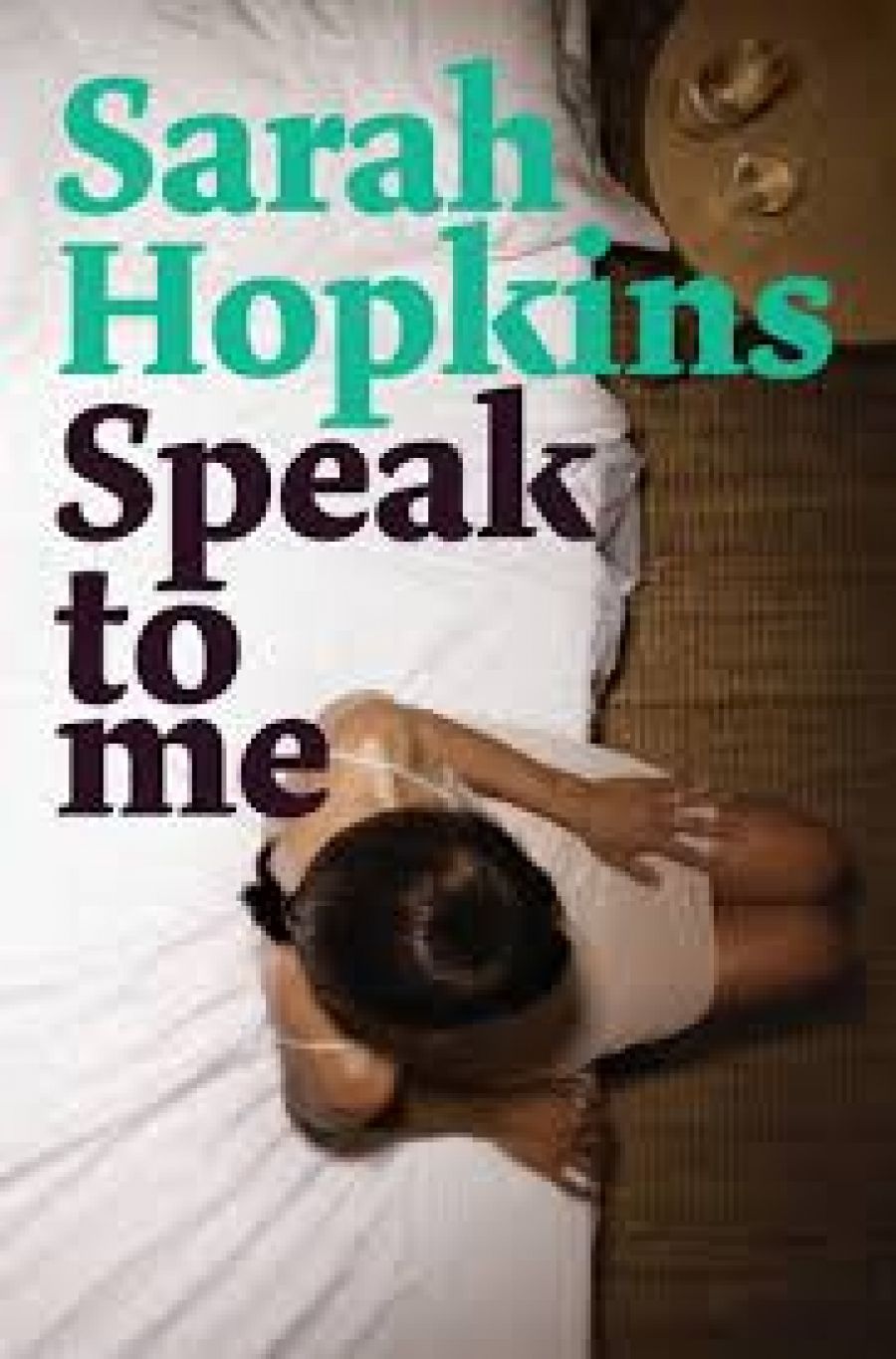
- Free Article: No
- Contents Category: Fiction
- Review Article: Yes
- Online Only: No
- Custom Highlight Text:
The title of Sarah Hopkins’s second novel, Speak to Me, is an exhortation: bridge the gap between us. It is also an expression of hope, however misguided, that such a gap can be bridged: if only we could speak, we could heal.
- Book 1 Title: Speak to Me
- Book 1 Biblio: Viking, $32.95 pb, 305 pp, 9780670074594
Six days in the company of the Byrnes family is more than enough time to discover their need to be healed. Having lost his sight after life-saving brain surgery, Michael, a psychiatrist, relies on his daughter, Charlotte, to ‘see’. While gentle with her father, Charlotte is snarling and rhetorical with Elizabeth, her mother. Elizabeth, a lawyer, faces silence on two fronts: Michael has withdrawn from her since his surgery, and a client caught with heroin won’t speak in his own defence. Daniel, the youngest, desires a different kind of connection altogether: ‘Speak to me, Lord. Speak to me.’ This roiling atmosphere devolves into crisis when Charlotte reveals that her hissing and spitting conceal suicidal thoughts.
Hopkins’s mannerly prose serves this brittle and complex family well, particularly the middle-class interiors of Elizabeth, with her Sisyphean personal and professional struggles, and Michael, steeped in guilt and darkness. Tied too strongly to societal clichés, their offspring can read more as types than as flesh and blood: Charlotte, a bright but misunderstood teen entranced by the idea of suicide; and Daniel, the rudderless child seduced by the comforts of the church.
Nevertheless, there is wisdom and specificity in how each of the Byrnes bridges their gaps. Hopkins avoids suggesting that familial chasms can be repaired merely through the linear exchange of speaking. In some cases, she insinuates that speaking itself cannot be enough. Rather, it is our bodies, our memories, the capacity to hope – as well as to speak – that can arrest the decay of our relationships.


Comments powered by CComment